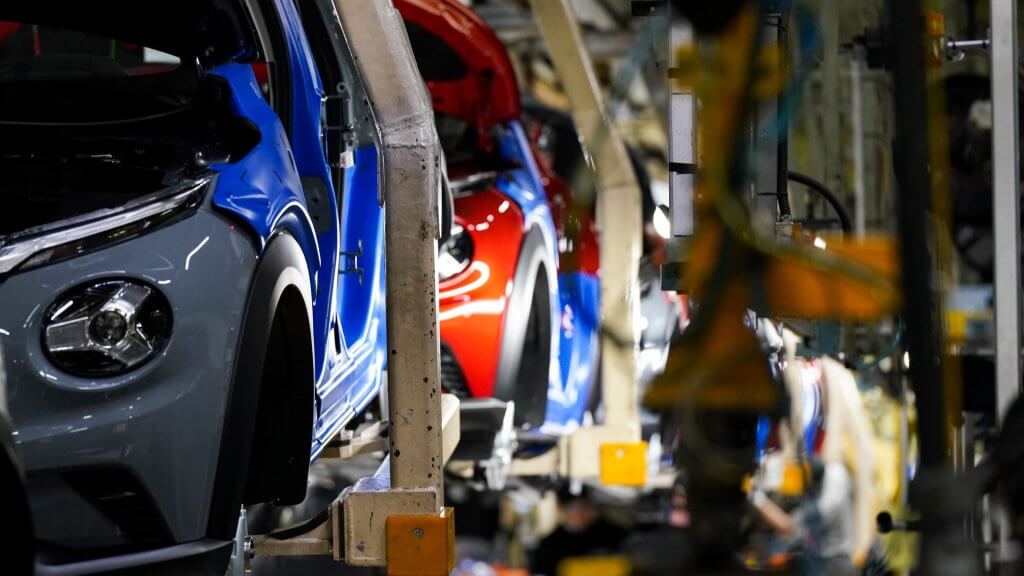UK Factory Slump Deepens As Tariff And Cost Worries Grow

UK factory production slumped to a one-and-a-half year low last month with manufacturers “hunkering down” as they brace for rising costs and global trade disruption, a new survey shows.
The S&P Global UK manufacturing PMI survey, watched closely by economists, showed a reading of 44.9 in March, down from 46.9 in February.
Any reading above 50 indicates that activity is growing while any score below means it is contracting.
March’s score was the lowest since October 2023 with the downturn reaching all corners of the industry, although smaller manufacturers were the hardest hit.
It also marks the fifth month in a row that activity has declined.
The level of new business received fell at one of the quickest rates since the pandemic in 2020, which S&P Global said was indicative of conditions worsening substantially for manufacturers.
Firms said the flow of new orders was disrupted by concerns about rises to the national minimum wage and employer national insurance, which come into effect this month.
The threat of tariffs raised by US President Donald Trump has also heightened uncertainty for factories.
Mr Trump has imposed new tariffs on UK aluminium and steel, and carmakers exporting to the US, in a bid to boost American production and protect home-grown manufacturers.
Rob Dobson, director at S&P Global Market Intelligence, said: “Companies are being hit on several fronts.
“Many reported that domestic market conditions are deteriorating, costs are rising due to changes in the national minimum wage and national insurance contributions, geopolitical tensions are intensifying, and global trade faces potential disruptions from tariffs.
“The outlook is also darkening, with overall business optimism plunging to its lowest levels since late 2022.
“Many firms are clearly hunkering down as they expect difficulties to continue in the coming months.”
Weaker demand from the US and Europe, as well as reduced levels of new business from China, India and the Middle East, drove down exports last month.
Meanwhile, UK firms carried on making cutbacks across the board, the survey revealed.
Staff levels were reduced for the fifth month in a row although the rate of job losses slowed after steep cuts in February.
James Brougham, senior economist for manufacturing trade group Make UK, said the Government must “sit up exceptionally straight and pay attention to a rapidly deteriorating situation for manufacturers”.
“Unlike the last trough in activity in mid-2023 that was induced by the acute pressures of the energy crisis at the time, this is being driven predominately by a steady and consistent decline in new orders for the sector – highlighting both the retreat in demand for the UK sector’s goods compounded with the effects of global economic policy uncertainty and potential tariffs.
“This is an endemic challenge when compared to the woes of previous years.”




